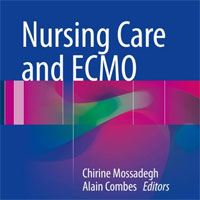Tag: mortality

Lipid Mediators in Critically Ill Patients: A Step Towards Precision Medicine
In this review, we provide an overview of the role of fatty acid-derived lipid mediators as endogenous regulators of the inflammatory, anti-inflammatory and pro-resolving response and future directions for use of clinical... read more

Improved Oxygenation After Prone Positioning May Be a Predictor of Survival in Patients With ARDS
We found a significant difference in the Pao2:Fio2 ratio after the first prone positioning between ICU survivors and nonsurvivors. The improvement in oxygenation after the first prone positioning was a significant predictor... read more

Association Between Benzodiazepine Use With or Without Opioid Use and All-Cause Mortality in the US
This study found a significant increase in all-cause mortality associated with benzodiazepine use with or without opioid use in comparison with SSRI use. Benzodiazepine and opioid co-treatment, in particular, was associated... read more

Apoptotic cells for therapeutic use in cytokine storm associated with sepsis
Sepsis has no proven specific pharmacologic treatment. Reported mortality in sepsis ranges from 30%-45%. This study was designed to determine the safety preliminary efficacy of allogenic apoptotic cells administered for immunomodulation... read more

Emerging pharmacological therapies for ARDS: COVID-19 and beyond
ARDS, first described in 1967, is the commonest form of acute severe hypoxemic respiratory failure. Despite considerable advances in our knowledge regarding the pathophysiology of ARDS, insights into the biologic mechanisms... read more

Decompensated Hypothyroidism: Why do we miss it, and how do we improve?
A 75-year-old female is brought to the Emergency Department (ED) by emergency medical services (EMS) for altered mental status. Vital signs include BP 87/64, HR 55, T 92.6 rectal, RR 12, SpO2 95% on room air. She is oriented... read more

Prior Routine Use of NSAIDs and Important Outcomes in Hospitalised COVID-19 Patients
Coronavirus disease 2019 (COVID-19) infection causes acute lung injury, resulting from aggressive inflammation initiated by viral replication. There has been much speculation about the potential role of non-steroidal inflammatory... read more

Utility of RV Remodeling Over Risk Stratification in COVID-19
This study contributes to the growing body of literature illustrating the adverse prognostic implications of RV dilation and dysfunction in the setting of severe COVID-19. Mechanistic explanations for RV failure in this population... read more

Conservative or Liberal Oxygen Therapy in Adults After Cardiac Arrest
Conservative oxygen therapy was associated with a statistically significant reduction in mortality at last follow-up compared to liberal oxygen therapy but the certainty of available evidence was low or very low due to bias,... read more

Factors Associated to ICU Mortality in Critically Ill Patients Infected with COVID-19 in Spain
Older COVID-19 patients with higher APACHE II scores on admission, those who developed AKI grades II or III and/or septic shock during ICU stay had an increased risk-of-death. ICU mortality was 31%. A total of 663 patients... read more

Using Dynamic Variables to Guide Perioperative Fluid Management
Intravenous fluid administration is an integral part of patient management during anesthesia. This practice has a strong clinical rationale since a decrease in blood volume, either present before or developing during surgery,... read more

Stress Hyperglycemia and Mortality in Subjects With Diabetes and Sepsis
Stress-induced hyperglycemia is a relevant prognostic factor also in the presence of diabetes. Mild-to-moderate stress hyperglycemia is considered a protective reaction to providing fuel for the immune system and brain at... read more

Early Arterial Embolization and Mortality in Mechanically Ventilated Patients With Hemoptysis
The objective of this study was to clarify whether early intervention by arterial embolization reduced mortality in mechanically ventilated patients with hemoptysis. The results show that early intervention by arterial... read more

Mortality Outcomes with Hydroxychloroquine and Chloroquine in COVID-19
No benefit of hydroxychloroquine or chloroquine on the survival of COVID-19 patients found. For hydroxychloroquine, the confidence interval is compatible with increased mortality or negligibly reduced mortality. Findings... read more








